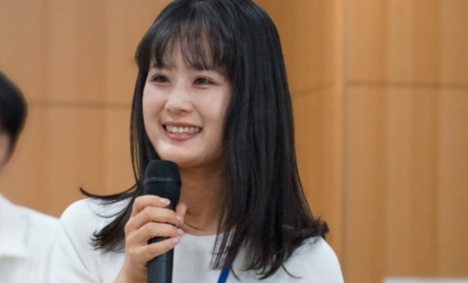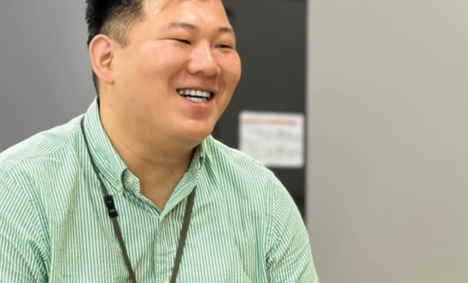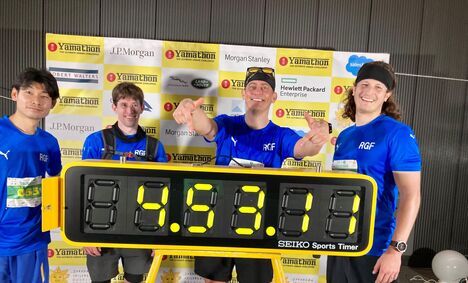
We’re very glad to have had the chance to interview Mikako Suzuki (Micky), President of AT Globe Corporation and author of “やっぱり外資系!がいい人の 必勝 転職 A to Z”. With over 25 years of experience in HR and having been the HR Director for DHL Japan, one of the world’s leading logistics companies, we wanted to get her insights on globalization in Japan.
RGF: Thank you for taking the time for this interview.
Micky: No problem, it’s my pleasure.
RGF: You have had the opportunity to interview over 10,000 candidates throughout your career, what are some qualities that you look for in a candidate?
Micky: Through these job interviews, you will learn a lot about a candidate – not only learn about their previous professional experiences but also their values, personality, and communication style.
To me, the criteria really depends on the position they are applying for but there are four important aspects I always try to look for when I’m interviewing candidates.
RGF: What are these four aspects?
Micky: First would be their achievements. A top-notch candidate would have a track record of consistent achievements so it would be quite easy to spot them. Candidates who are consistently performing well also prove that they are working smart to attain their goals.
RGF: That’s very true. Since they’ve proven how well they’ve performed in the past, it is highly likely that they will also succeed in the job they're applying for. What’s the next one?
Micky: The second one would be good communication skills, which comes out very clearly when conducting an interview. If a candidate can clearly, concisely and logically express their thoughts then they will likely be able to succeed in any business environment, which will always involve internal or external communication.
RGF: I see. How soon can you tell if the person has good communication skills?
Micky: Typically within 10 mins. – especially during the candidate’s introduction. That part of the interview speaks volumes about their communication style as well as of course, their experience and personality.
RGF: I quite agree with that. What are the two other qualities that you look for in a candidate?
Micky: The third one would be someone who has common sense and can make you feel comfortable. Since you’re hiring someone who will be part of a team, you would want others to also feel comfortable working with this potential employee. And last but not the least, it is assertiveness. In a corporate environment, for your voice to be heard, you need to be reasonably assertive.

RGF: We’ve spoken about assertiveness in your past interviews and it really seems like this is becoming increasingly important if you want to succeed on a global scale. Culturally, however, Japanese professionals pride themselves on their ability to be less confrontational.
Micky: Yes, that is true. Traditionally, Japanese talent prefer to conform and avoid standing out. Most Japanese professionals have been trained since childhood to mute their assertiveness and be less confrontational. However, the world is increasingly globalizing and with this comes changes to the status quo. One good way to demonstrate how Japanese people are gradually changing is by looking at Japanese talent working at multinational companies.
RGF: How is this so? What are some of your observations about Japanese talent working at multinational companies?
Micky: Throughout my career, I’ve observed that Japanese employees at multinational companies appreciate uniqueness and individuality more. Because of this, there is thus a tendency for Japanese talent working at multinational companies to be more expressive of their real thoughts and to be risk-takers. It wouldn’t be surprising because if you’re working at multinational companies, you are constantly exposed to other nationalities, other cultures, other work styles, and other ways of thinking.
RGF: So does this mean that Japanese talent can be assertive?
Micky: Yes, I believe assertiveness is a skill that you can hone – it’s not necessarily an innate characteristic – and anyone can develop this trait as long as you are in an environment where assertiveness is encouraged. When I started working, I worked for a multinational company and I was encouraged to say what was on my mind – and that I should voice out my own opinions. Initially, it was tough because my Boss would always ask me what my thoughts were and I wasn’t used to that. But I eventually found my inner voice. I eventually learned to be expressive of my own thoughts and eventually became more assertive. Now I have my own opinion, it may not always be right but at least it is my own opinion and I am proud of that.
RGF: If assertiveness is a skill that you can develop, how can you train yourself to be more assertive?
Micky: I think it can start with small daily things. When you’re out with a group of colleagues for lunch, instead of ordering the same type of dish, why don’t you get something that you really want? If someone asks what your opinion is about current events, give your honest opinion. You don’t have to hide your true thoughts when someone expresses their own opinion. You don’t have to say “I feel the same”. Listen to what they have to say and then express your own thoughts.
RGF: That is quite true. Big things start from small beginnings.
A while ago you mentioned that the world is increasingly globalizing. How do you think this is changing the talent landscape in Japan?
Micky: You can see these changes on two fronts.
First would be the increase in opportunities. For example, we’re now seeing a need for more HR specialists, especially within multinational companies. In the past, there were more HR generalists because traditionally, domestic Japanese firms favored HR generalists over HR specialists mostly due to lifelong employment. Companies trained and developed their employees from Day 1 until they can cover all aspects of the business’ HR activities. However, as more opportunities emerge domestically and internationally, we’re now seeing the end of lifelong employment and an increase in highly specialized jobs.
The second one would be the workforce itself. Due to both globalization and the labor shortage in Japan, the Japanese workforce should expect an influx of non-Japanese talent. This movement, however, is not exclusive to Japan. It is a global phenomenon that is changing the dynamics of various industries and job markets. Professionals, both Japanese and non-Japanese, must learn to cope with these changes.
RGF: Yes, it is quite clear that globalization brings with it a need to cope with the changing times. But why do you think this is necessary for Japanese and non-Japanese professionals?
Micky: Since the world is globalizing, business operations and business methods are becoming more borderless, diverse, and open. If we keep using the same old restricted methods and resolutions to address future problems, they might not be compatible. If they’re not compatible, we need to accept that adjustments need to be made – otherwise, the development and progress of our businesses might stall.
RGF: Since this is becoming more and more important, how do you think Japanese companies can adjust to the growing needs of a globalizing world?
Micky: One simple solution would be to implement Diversity and Inclusion initiatives into a company’s Learning & Development strategy. Although it has always been difficult to track and measure the results of investing in L&D, this type of training would nevertheless be beneficial for Japanese professionals. Diversity & Inclusion initiatives would help us understand other cultures, values, work styles, and success stories. It also helps us share our own culture, values, work style, and our successes so that everyone has a better understanding of each other. With this understanding, we become more aware and are more likely to accept diversity not just in the workplace but also in business as well.
Having this mindset, we will be able to work together more effectively, learn from each other, and grow together so that we will be more equipped to face an even more globalized future.
RGF: Thank you, Micky, that was truly insightful.

Working at a global company has many advantages, not only for those who want to work globally and those who want to make use of their language skills, but also for people who strive to Unleash their Potential seek their own potential and have a healthy work-life balance.
RGF Professional Recruitment Japan supports the recruitment hiring activities of many of the top domestic and foreign capital companies in Japan. Various excellent companies including foreign and Japanese global companies located in Japan. Therefore, as a result, we can introduce the best career options for each person.to suite all types of career profile.
If you want to work in a global environment or globally, want to work in a place where you can perform more, or want toto a higher level and expand your career options in the future, please contact us. Our experienced consultants will do their best to support your career growth.






